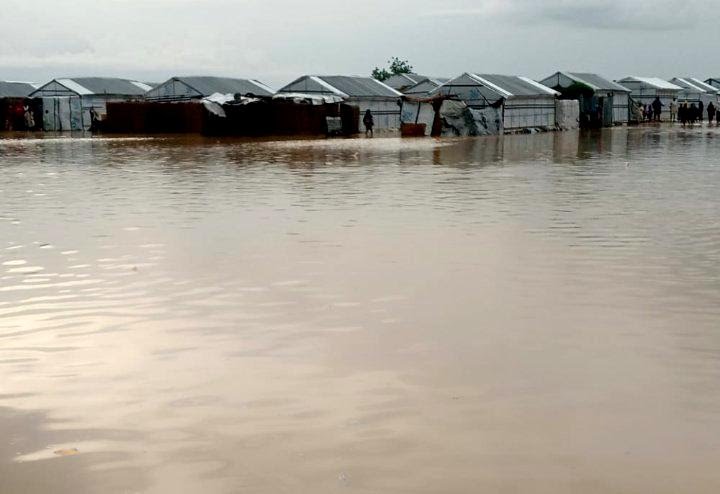

By Praise Ben
Distressed leaves shook off the brown dust carpeting them and took on delightful green; the thirsty earth greedily sucked up water and man’s heels stamped on damp soil; serenading gentle breeze usurped harsh heat; stunted plants sprouted enlivened; farmers hopes renewed; eaters appetite refreshed… We all were ecstatic; THE LONG AWAITED RAINNY SEASON FINALLY ARRIVED.
Sadly, the excitement that accompanied the rains swiftly morphed into anxiety, then into tragedy. When before our very eyes giant structures were submerged and fancy roofs floated like boasts on water; possessions worth millions of naira were eroded; house owners were displaced; the scourge of homelessness surged; flood claimed many people’s lives and ripped many others of their sources of livelihood, we can only conclude, Water be the enemy. The Nigerian rainfall this year invalidates the popular song by Fela Anikulapo Kuti: Water, e no get enemy.
An appraisal of the unprecedented experience of flood that Nigeria has this year should make us wonder: Is this the rage of the god of rain or we have slacked as a people? The answer to this question should be a fusion of both. A stitch in time, they say, saves nine. Nature’s rage, compounded by the negligence of public officials, has resulted in tragedies in the form of flood.
Alas! This disaster was predicted, which means that if proactive measures had been taken, its impact could have been weightless.
As early as 15 February, the Nigeria Meteorological Agency had released the 2022 Seasonal Climate Forecast that warned of heavier rainfalls and floods than those experienced in 2012. This was followed by an advisory from the Nigeria Hydrological Survey Agency on the annual flood outlook. But what did we do as a people? We folded our hands and kept hope alive and prayed for a miracle, as typical of us. Does a straying dog ever heed the sound of a whistle?
The Minister of Humanitarian Affairs, Disaster Management and Social Development, Sadiya Umar Farouq, said that 603 persons have died across the country from this year’s flood, as of October 16. Working men, market women, and even school children were not spared by the unprecedented flood. The flood has done more damage to the country’s economy in a few weeks than other ‘serious’ national problems have done in years.
The Nigerian Midstream and Downstream Petroleum Regulatory Authority explained a week back that the return of long queues in fuel stations in the Federal Capital Territory is the result of the unprecedented flooding in Kogi State, Bayelsa and other parts of southern Nigeria.
Lagos, Enugu, Kaduna, Ebonyi, and Plateau are a few states facing fuel scarcity as a result of the havoc wrecked by flood.
The chairman of the Independent Petroleum Marketers Association of Nigeria (IPMAN), addressing the long fuel queues, explained categorically that there is indeed ‘no scarcity’ of the product, but there is a problem of transportation as a result of this same disaster.
Though the association assured Nigerians that efforts were being made to transport products to every part of the country via vessels and other alternative routes, the queues grow longer on a daily basis.
PMS is one of the numerous essential merchandises that Nigerians have been denied in recent weeks due to transportation issues.
The economy of the nation has been dealt a severe blow, and it is impossible to ignore the impact of rising dollar rates and skyrocketing food prices, with some selling double the price, mostly in affected states.
Schools, banks, and other businesses have also been forced to close. Residents have fled their homes, farmlands, and workplaces in search of safety. Passengers carrying goods have also been left stranded.
Water should be a blessing, not a curse. The government must act quickly and efficiently to cushion the effect of this natural disaster, otherwise the country’s economy will collapse in a matter of weeks.
Click to watch our video of the week
35th AFCON to be held in Morocco December 2025 Nigeria up against Tunisia, Uganda and…
NSC plans to revamp National Stadium and other sports facilities through public-private partnerships. Dikko emphasizes…
Plans underway for Nigeria to experience digitalized education Education Minister, Dr. Alausa launches NEDI The…